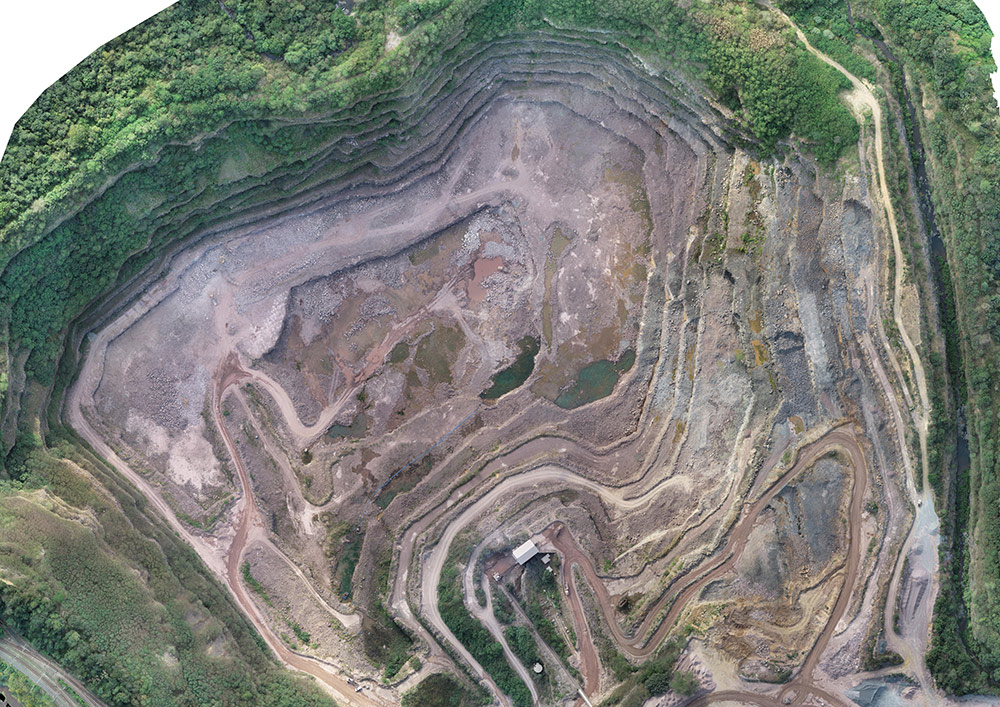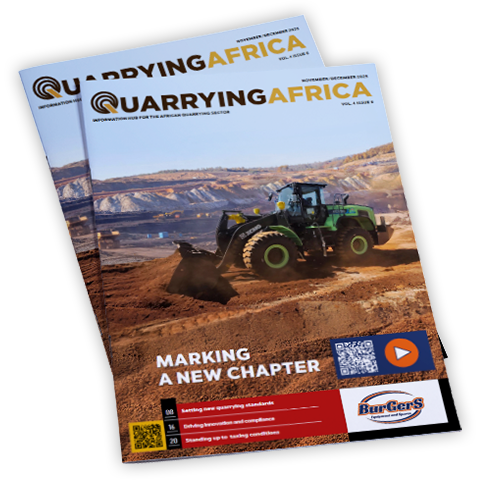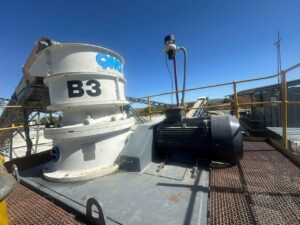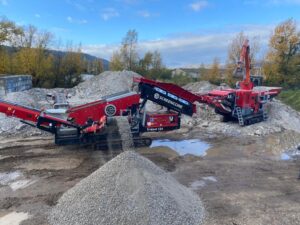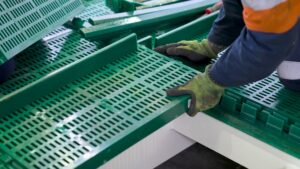Having commenced operations in 1927, AfriSam Coedmore is one of the oldest quarries in South Africa. With an annual production capacity in excess of 1-million tonnes, the operation is one of the largest quarries, not only within the AfriSam portfolio, but in South Africa at large.
AfriSam Coedmore mines a competent quartzite rock, with some intrusions of dolerite and tillite. The dolerite intrusions are generally used to make sub-base materials such as G5, while the other two competent rocks are central to the manufacture of highly sought after concrete aggregates and roadstone.
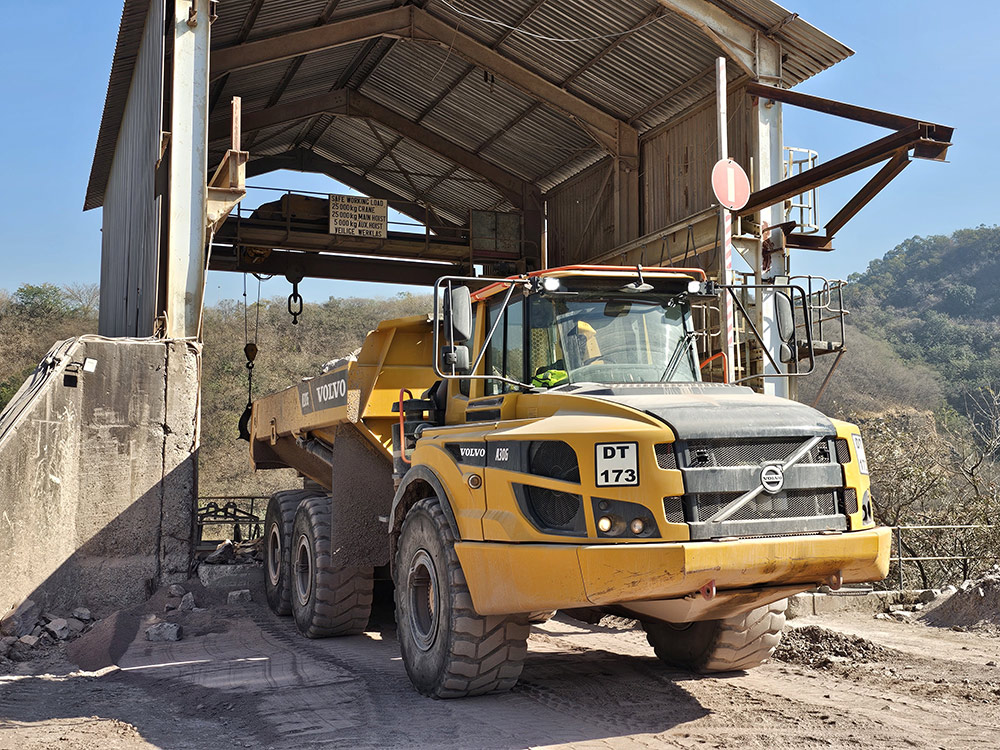
Infrastructure hotspot
Located to the south of Durban, AfriSam Coedmore has in the past few years enjoyed high aggregates demand, especially given its close proximity to SANRAL’s ongoing flagship N2/N3 road upgrades. The upgrades, which form part of the national government’s Strategic Integrated Projects (SIP2): Durban-Free State-Gauteng Logistics and Industrial Corridor, are expected to take between eight to ten years to complete.
The upgrade of the N2 focuses on a 55-km stretch from Illovu River on the South Coast to Umdloti on the North Coast. The N3 project focuses on an 80 km section from Durban to Pietermaritzburg. The upgrades entail the widening of the N2 and N3 carriageways, with four or five lanes in each direction, as well as the reconfiguration of most major interchanges.
One of the major legs of the project to which the quarry is supplying materials is the upgrade of the EB Cloete Interchange on the N2. Located within a 10 km distance of AfriSam Coedmore, the EB Cloete Interchange is said to be currently the single largest road infrastructure project in South Africa. With a project value of R5-billion, SANRAL says it is the biggest single project value undertaken by the roads authority to date.
“We are fortunate to be situated right at the doorstep of the many faces of the N2/N3 road upgrades,” says Lloyd Maringa, works manager at AfriSam Coedmore. “In the past few years, we have enjoyed high aggregates demand, initially supplying mostly base and sub-base materials during the early days of the projects. With the upgrades now moving onto surfacing, we are starting to move more high-value products such as roadstone and concrete aggregates.”
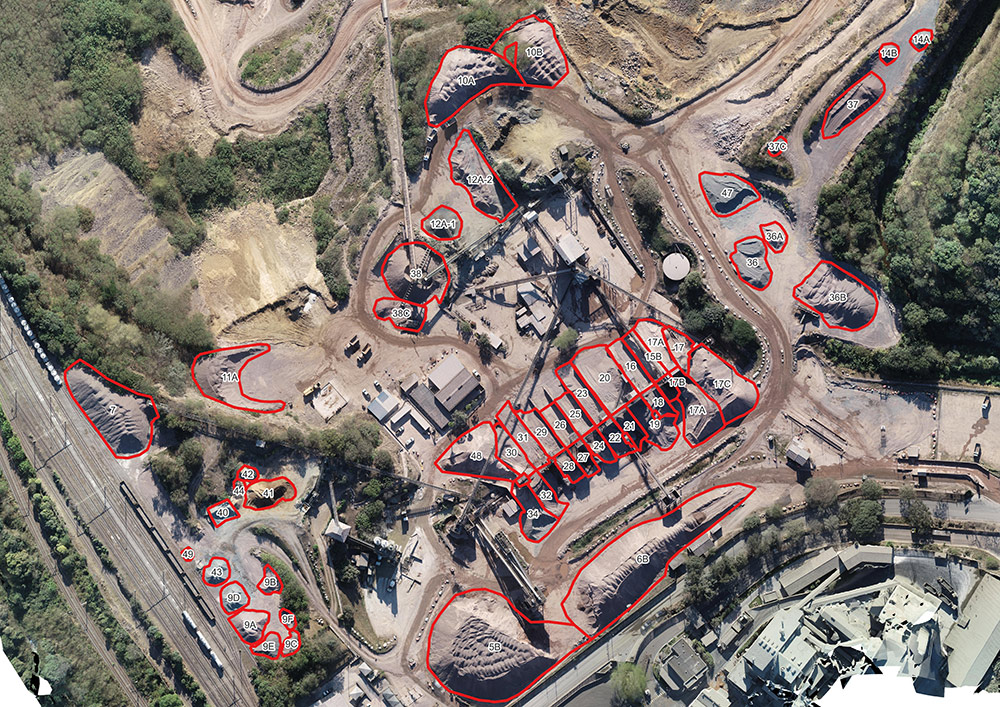
Capacity and efficiency drive
Despite a huge spike in demand, AfriSam Coedmore did not necessarily need to invest in more capacity. The existing capacity – a million tonnes per year – put the operation in good stead to meet the rising demand. “To provide context, we run one of the biggest primary crushers in the South African quarrying sector – a 700 tonnes per hour (tph) Allis Chalmers 3655 superior gyratory crusher. To meet rising demand, we simply increase the number of shifts, when necessary,” says Maringa.
The production process starts in the pit, with at least a single blast per month. Blasts – outsourced to well-known contractor Brauteseth Blasting – are kept fairly large, averaging 60 000 t of material on the ground per blast, confirms Dustin Naidoo, maintenance superintendent at AfriSam Coedmore.
The load and haul function is outsourced and the contractor deploys a 50-t excavator, which loads 35-t articulated dump trucks (ADTs). The ADTs haul material from the face to the primary section of the plant, tipping directly into the in-pit Allis Chalmers 3655 gyratory crusher. The primary plant then feeds a 280-m conveyor belt running from the primary section to the intermediate stockpile (ISP).
“Installing the primary plant in the pit has ensured reduced haul distances, thus cutting down on diesel costs. This is particularly beneficial, especially given the deep nature of the pit. The depth of the quarry pit is now 140 m and is minus 54 m below sea level. As part of our efficiency drive to reduce our cost per tonne of operation, we also found it cost-effective to run an electric conveyor instead of hauling material using diesel-powered trucks,” says Naidoo.
From the ISP, material is fed into a tunnel with two conveyor belts moving material to the secondary crusher, a Symons 5 ½ foot cone crusher, running at an average 35 mm closed side setting (CSS). AfriSam Coedmore is one of the few quarries in South Africa still running this old generation cone crusher which typifies longevity and durability. From here, material moves to the tertiary crusher, a new generation Metso HP400 cone crusher running at an average 18 mm CSS. From here, material goes to a series of vibrating screens, where it is screened into various product sizes, from 50 mm down to a -7,1 mm sand.
“In recent years, the plant has benefitted from major upgrades, which put us in good stead to meet the current high aggregates demand in our area,” explains Naidoo. “One of the most recent upgrades was the installation of the new Metso HP400 tertiary crusher back in 2019, replacing the older Nordberg 1352 omnicone crusher. The HP is an industry standard in aggregates production. It features a unique combination of crusher speed, throw, crushing forces and cavity design, providing higher capacity and superior end-product quality in secondary, tertiary and even quaternary applications.”
In addition, AfriSam Coedmore recently replaced its old Nordberg 1144 omnicone crusher with a new generation Telsmith SBS-38 cone crusher supplied by Astec Industries. One of the key features of this crusher is the large feed opening which yields high performance.
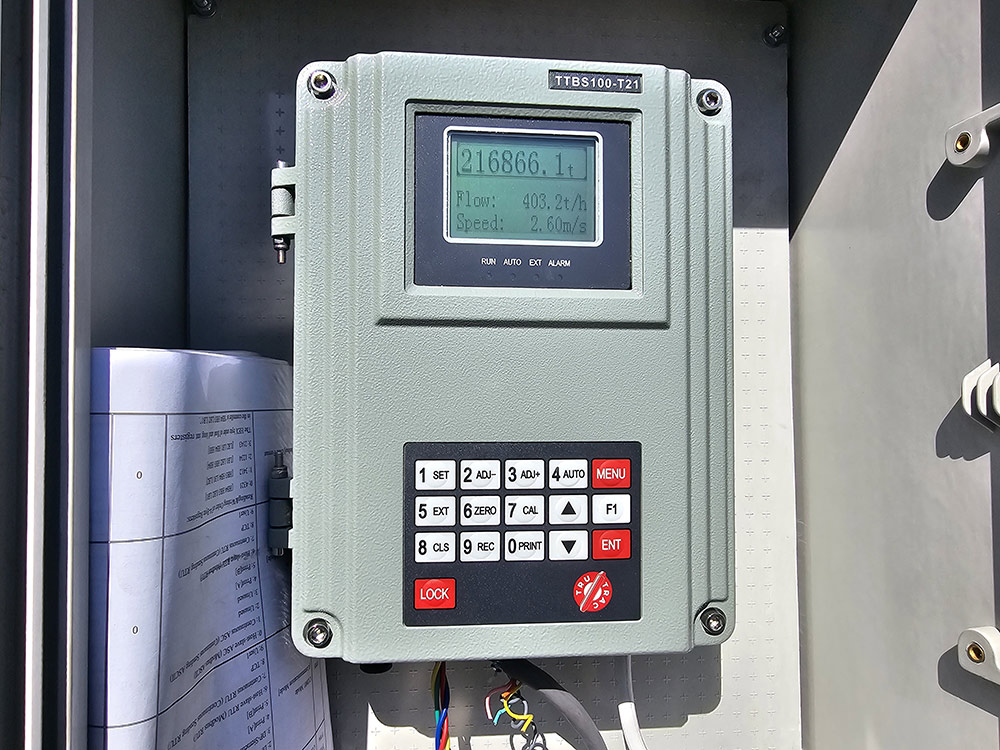
Technologically driven
Quarry operations cannot afford to ignore the benefits of using the latest technologies to drive efficiencies. The increased economic and operational pressures, says Maringa, demand that today’s quarries stay ahead to remain competitive.
One area where this is particularly crucial is in blasting – a critical function that greatly influences operational efficiency, costs and the success of all the other downstream processes, such as load and haul, as well as crushing and screening. With the use of electronic blasting systems, it is now possible for AfriSam Coedmore not only to meet higher safety levels and environmental impact control, but to also gain more blast control and improve fragmentation, thus delivering more downstream value to the whole operation.
“AfriSam uses the latest technology when executing our blasts. This enables us to operate in harmony with the communities surrounding our operations,’’ says Maringa.
To preserve uptime in loading operations, AfriSam Coedmore quarry is taking advantage of the array of benefits offered by modern Loadrite on-board weighing systems from Loadtech. The company’s three Volvo wheel loaders, deployed to load customer trucks, are fitted with the Loadrite L3180 SmartScale, which uses weighing intelligence and solid-state sensors for more accurate, precise and faster loading.
“Loading is a key function of our operations. Traditionally, we relied on weighbridges alone, which are known to be prone to product errors and weight challenges. With the Loadrite system, we are able to eliminate guesswork in our loadout processes, which means customer trucks are loaded correctly the first time,” says Naidoo.
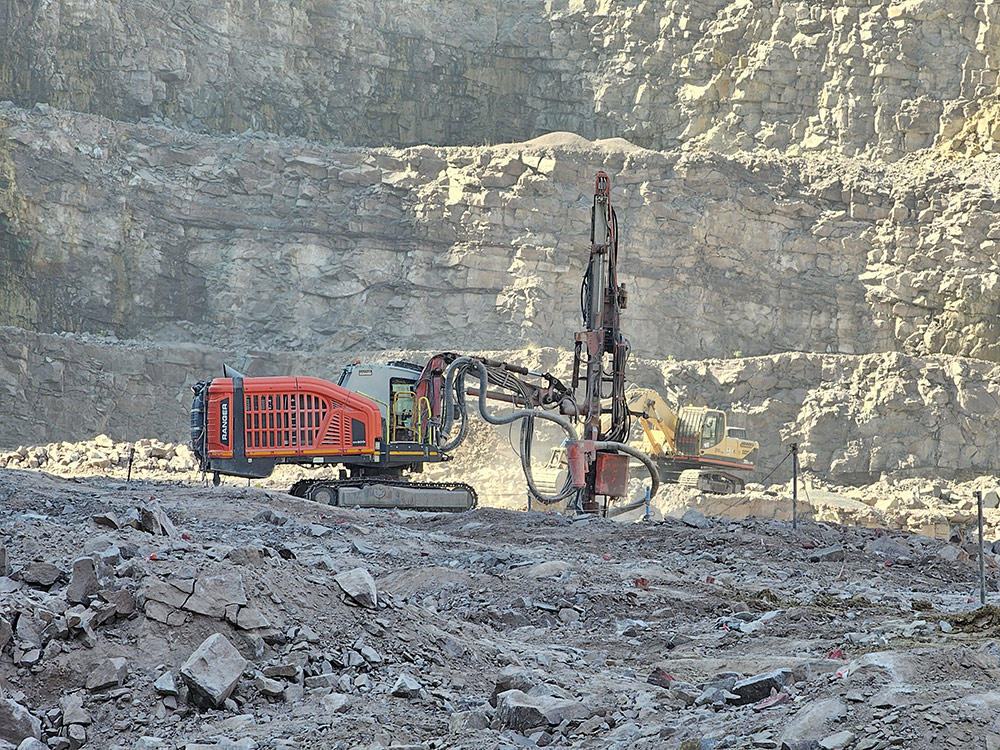
In addition, the quarry has recently invested in a Tru-Trac belt scale. Previously, the team at AfriSam Coedmore struggled with monitoring production output and inventory. The wide margin of errors with the previous belt scale had a dramatic impact on operations.
“The Tru-Truc belt scale facilitates weighing of real mass of the material from the ISP to the secondary crusher. We have found it to be a simple and extremely accurate system engineered to provide precise data. In fact, we were impressed by the static calibration accuracy error levels as low as 0,06% – which is outstanding. Previously, our accuracy error margins were as high as 15% with the previous belt scale,” says Naidoo.
“Technology is the lifeblood of our operations, and we will therefore continuously investigate new technologies in the market to ensure efficiency and productivity of the highest orders,” concludes Maringa.
